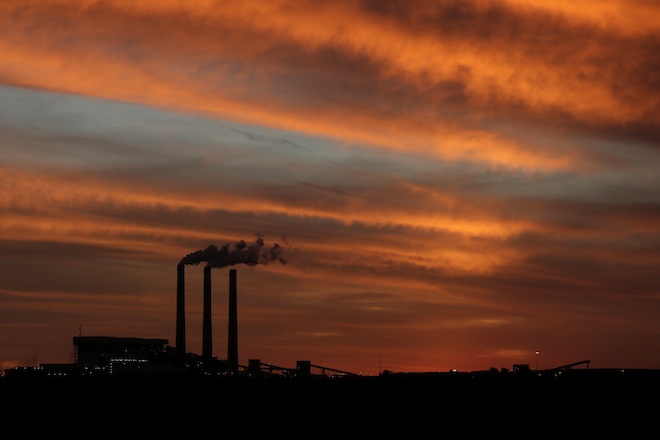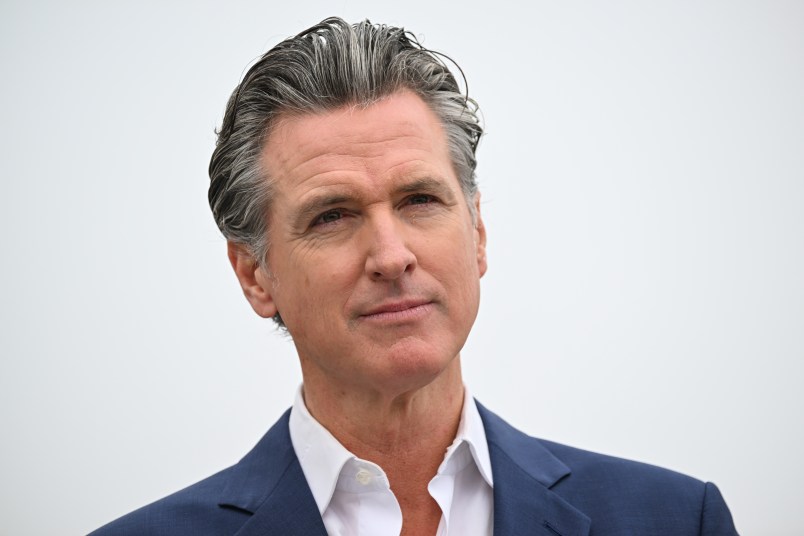STOCKHOLM (AP) — Scientists can now say with extreme confidence that human activity is the dominant cause of the global warming observed since the 1950s, a new report by an international scientific group said Friday.
Calling man-made warming “extremely likely,” the Intergovernmental Panel on Climate Change used the strongest words yet on the issue as it adopted its assessment on the state of the climate system.
In its previous assessment, in 2007, the U.N.-sponsored panel said it was “very likely” that global warming was man-made.
One of the most controversial subjects in the report was how to deal with a purported slowdown in warming in the past 15 years. Climate skeptics say this “hiatus” casts doubt on the scientific consensus on climate change.
Many governments had objections over how the issue was treated in earlier drafts and some had called for it to be deleted altogether.
In the end, the IPCC made only a brief mention of the issue in the summary for policymakers, stressing that short-term records are sensitive to natural variability and don’t in general reflect long-term trends.
“An old rule says that climate-relevant trends should not be calculated for periods less than around 30 years,” said Thomas Stocker, co-chair of the group that wrote the report.
Many scientists say the purported slowdown reflects random climate fluctuations and an unusually hot year, 1998, picked as a starting point for charting temperatures. Another leading hypothesis is that heat is settling temporarily in the oceans, but that wasn’t included in the summary.
Stocker said there wasn’t enough literature on “this emerging question.”
The IPCC said the evidence of climate change has grown thanks to more and better observations, a clearer understanding of the climate system and improved models to analyze the impact of rising temperatures.
“Our assessment of the science finds that the atmosphere and ocean have warmed, the amount of snow and ice has diminished, the global mean sea level has risen and the concentrations of greenhouse gases have increased,” said Qin Dahe, co-chair of the working group that wrote the report.
The full 2,000-page report isn’t going to be released until Monday, but the summary for policymakers with the key findings was published Friday. It contained few surprises as many of the findings had been leaked in advance.
As expected, the IPCC raised its projections of the rise in sea levels to 10-32 inches (26-82 centimeters) by the end of the century. The previous report predicted a rise of 7-23 inches (18-59 centimeters).
The IPCC assessments are important because they form the scientific basis of U.N. negotiations on a new climate deal. Governments are supposed to finish that agreement in 2015, but it’s unclear whether they will commit to the emissions cuts that scientists say will be necessary to keep the temperature below a limit at which the worst effects of climate change can be avoided.
Using four scenarios with different emissions controls, the report projected that global average temperatures would rise by 0.3 to 4.8 degrees C by the end of the century. That’s 0.5-8.6 F.
Only the two lower scenarios, which were based on significant cuts in CO2 emissions, came in below the 2-degree C (3.6 F) limit that countries have set as their target in the climate talks to avoid the worst impacts of warming.
“This is yet another wakeup call: Those who deny the science or choose excuses over action are playing with fire,” U.S. Secretary of State John Kerry said in a statement. “Once again, the science grows clearer, the case grows more compelling, and the costs of inaction grow beyond anything that anyone with conscience or common sense should be willing to even contemplate.”
At this point, emissions keep rising mainly due to rapid growth in China and other emerging economies. They say rich countries should take the lead on emissions cuts because they’ve pumped carbon into the atmosphere for longer.
Climate activists said the report should spur governments to action.
“There are few surprises in this report but the increase in the confidence around many observations just validates what we are seeing happening around us,” said Samantha Smith, of the World Wildlife Fund.
Here are the key findings:
— Global warming is “unequivocal,” and since the 1950’s it’s “extremely likely” that human activities have been the dominant cause of the temperature rise.
— Concentrations of CO2 and other greenhouse gases in the atmosphere have increased to levels that are unprecedented in at least 800,000 years. The burning of fossil fuels is the main reason behind a 40 percent increase in C02 concentrations since the industrial revolution.
— Global temperatures are likely to rise by 0.3 to 4.8 degrees C, or 0.5-8.6 F, by the end of the century depending on how much governments control carbon emissions.
— Most aspects of climate change will continue for many centuries even if CO2 emissions are stopped.
— Sea levels are expected to rise a further 10-32 inches (26-82 centimeters) by the end of the century.
— The Greenland and Antarctic ice sheets have been losing mass over the past two decades. Glaciers have continued to melt almost all over the world. Arctic sea ice has shrunk and spring snow cover has continued to decrease, and it is “very likely” that this will continue.
— It’s “virtually certain” that the upper ocean has warmed from 1971 to 2010. The ocean will continue to warm this century, with heat penetrating from the surface to the deep ocean.
Copyright 2013 The Associated Press. All rights reserved. This material may not be published, broadcast, rewritten or redistributed.










